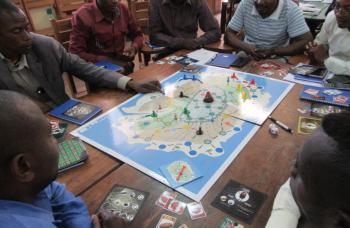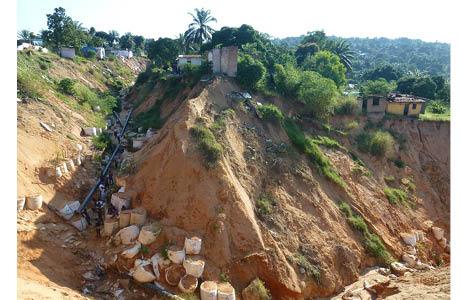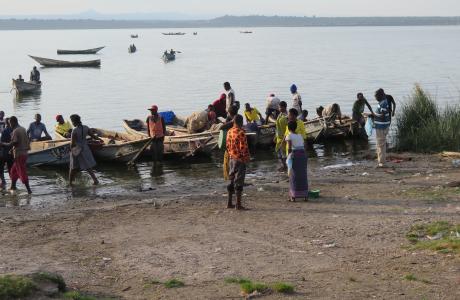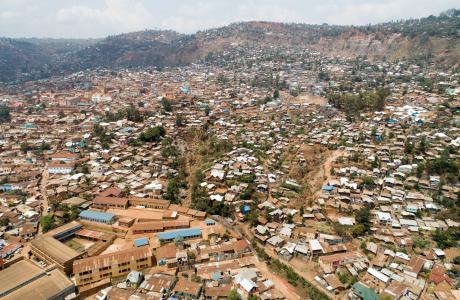Board game teaches Goma residents about geological hazards
The board game ‘Hazagora’ was designed to give players knowledge and strategies to cope with geological hazards. RMCA geographer Caroline Michellier puts it to the test by organizing courses for secondary school teachers in the city of Goma, Nord Kivu. ‘Hazagora’ is now ready to go live.

Natural hazards in Kivu
The Lake Kivu region is highly prone to volcanic eruptions, landslides, and earthquakes. GeoRisCA, a research programme led by the RMCA between 2012 and 2017, investigated the natural hazards in the region. Researchers analysed these dangers as well as the vulnerability of the region’s inhabitants, infrastructure, and natural ecosystems, then mapped the different hazards. Their work gave local authorities a decision-making tool that helped them improve their risk management and reinforce preventive measures.
Training teachers in Goma
‘Along with our fellow Congolese scientists, we wanted to go further,’ explained Caroline Michellier. ‘It’s essential for the inhabitants of Goma, a city of nearly a million people at the foot of the Nyiragongo volcano, to have a good understanding of the disasters that may happen. This is why I partnered with the Protection civile and the Ministère de l’Enseignement to train secondary school teachers in Goma in the use of an educational game, Hazagora, designed by my colleagues from VUB.’
Hazagora, an educational game
On the island of Hazagora, players design a society that is regularly visited by earthquakes, volcanic eruptions, and landslides. Discussions on these geohazards and their possible consequences teach them more about the mechanisms of these processes. The game also teaches them how to prepare for these types of natural disasters. A study has already shown its effectiveness.
The teachers in Goma can thus move on to the next phase. The goal is to raise awareness among students and, more broadly, their families, of the risks of natural disasters and measures they can take to prepare for them. ‘Through this game,’ said Caroline, ‘we wanted to reinforce the resilience of Goma’s residents so that they are better equipped to face future disasters.’
GeoRisCA research programme (with the support of BELSPO - SD/RI/02A)
Natural hazards service (GeoRiskA)


